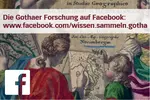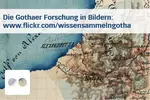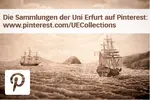Ongoing research projects
Configurations of European Fairs. Merchants, Objects, Routes (1350-1600) - CoMOR
- Funding: ANR and DFG (2020-2023)
- Abstract: The financial crisis of 2008 has helped to stimulate new research in economic history and, in contrast to the disruptive quality of what is happening today, has focussed attention on the long-term study of historical markets. More recently, the blows dealt to the organisation of world trade have undermined institutional analyses and raised questions about the future of the globalised market.
Against this backdrop, the CoMOR project aims to reappraise the history of European trade fairs from the perspective of market integration. At the end of the Middle Ages, fairs formed a system based on coherent chronological sequences (the "fair calendar") that enabled traders to meet at previously known locations and on previously known dates. The fairs intertwined local with regional markets and supra-regional trade networks. In the 16th century, there was a decoupling of goods and financial fairs and a shift away from credit activities in connection with the trade in goods and towards money markets.
The project will examine the fair network (and its development) by focusing on the encounters of the fair traders, their role patterns and the behaviour of the various actors. For the first time, the spatial and temporal dimensions of the trade relationships will be mapped in a GIS using a database in which the collected data (fair traders, traded objects, routes and time sequences) will be recorded. This central aspect of the project's digital cartography can draw on the expertise of the French team in digital humanities and the German team in spatial humanities. The research will focus on France, Germany and Italy - the area on which the core of the consortium is working, although other economic and cultural areas will also be included at the end of the project (Mediterranean region, North Africa, Indian Ocean). - Participating institutions: University of Erfurt, University of Leipzig, CIHAM ("Histoire, archéologie, littératures des mondes chrétiens et musulmans médiévaux" - UMR 5648), École normale supérieure de Lyon
- Members and partners of the project: Marjorie Burghart (Lyon), Andrea Caracausi (Padua), Hilario Casado Alonso (Valladolid), Markus Denzel (Leipzig), Ulf Christian Ewert (Erfurt), Simon Franzen (Erfurt), Bruno Galland (Lyon), Jean-Louis Gaulin (Lyon), Marta Gravela (Lyon), Mark Häberlein (Bamberg), Pierre-Cyrille Hautcœur (Paris), Armand Jamme (Lyon), Heinrich Lang (Leipzig), Clément Lenoble (Lyon), Claudio Marsilio (Lisbon), Ezio Pia (Turin), Susanne Rau (Erfurt), Michael Rothmann (Hanover), Leif Scheuermann (Graz), Giacomo Todeschini (Trieste), Laurent Vallière (Avignon), Abbès Zouache (Kuwait)
- Activities:
- 1st workshop: 19 June 2020 (Lyon) : Réunion de lancement
-
2nd workshop: 22 January 2021 (Erfurt): The merchants at the fairs of the late Middle Ages(programme)
-
3rd workshop: 25 June 2021 (Lyon): Les foires de Lyon / The Lyon fairs (programme)
- CoMOR on HAL SHS: https://hal.archives-ouvertes.fr/FAIRS-IN-HISTORY/
Research Group "Religion and Urbanity: Reciprocal Formations"
- Collaborative Research Centre "Religion and Urbanity: Mutual Formations" (FOR 2779)
- Funding: DFG (2018-2022)
- further information can be found on the project page; ongoing reports in our blog on Hypotheses.org
German-Indian cooperation project
- "Entangled Cartographies" - Indo-German scientific collaboration in historical sciences (history, history of cartography, history of science, digital humanities) 2017-18
- Cooperation partners: Gopinath Ravindran, Jamia Millia Islamia, New Delhi
- Funding: DFG (2017-2018)
- International Conference on "Entangled Cartographies: An interconnected history of mapping in Europe and South Asia, 16th to 20th centuries" (3-5 October 2017)
- Registration and programme
- "Further expansion of the internationalisation of the University of Erfurt and the Department of History" (Wortmelder, 27 July 2017)
- Workshop report (forthcoming)
- see also: Kalakriti Archives of maps, Hyderabad, and an exposition on how Europeans mapped India since the 16th century
TMBWK project "Globalisation and local knowledge"
Globalisation and local knowledge
- Collection-oriented research on the publishing house Justus Perthes (2012-2016)
- Subproject Virtual Map Lab
- Prototype of the map lab (now switched off)
- Gotha Perthes Collection Gotha project page on the"GlobMapLab" (with a link to "Perthes digital", the future digital repository for all materials in the Perthes Collection)
- Interview: "GlobMapLab": An interview with Professor Dr Susanne Rau about the virtual map lab at the University of Erfurt (Wortmelder, 12 November 2016)
DFG project "History and Cultures of Spaces in the Early Modern Period"
General information about the project
To the project page "History and Cultures of Spaces in the Early Modern Period"
The project is divided into 3 sections:
- 1. spaces - an introduction from a historical perspective (for the series "Historical Introductions" at Campus-Verlag)
- 2. pre-modern long-distance trade and long-distance travelling - or: How was global trade possible in the early modern period?
- 3. the urbanisation of the periphery - urban expansion projects in the early modern period
- The common denominator or focus of the three projects are historical conceptualisations, perceptions and, above all, uses of spaces. Spaces are understood as social objects that are characterised by their spatial dimension. These dimensions can be material, ideal/imaginary or hybrid. Project 1 is both methodological and theoretical.
- The levels city/periphery (project 3) and world (project 2) thus complement earlier research on micro-spaces such as spaces of sociability (pubs, coffee houses) and sacred spaces, which were funded by the DFG and the Leverhulme Trust in the context of the Collaborative Research Centre 537 (cf. the project page of the international research network "Social sites").
- The current projects are funded as part of the DFG's Heisenberg Programme.
Project workshop (Erfurt, 18 May 2012)
Mapping Spatial Relations, their Perceptions and Dynamics: the City today and in the Past
- Programme
- Conference reports:
- 1. Ekkehard Schönherr: Conference report "Mapping spatial relations"..., in: Information on Modern Urban History, 1/2013, pp. 149-151.
- 2 Urška Perenic: Katiranje prostorskih odnosov, njihovega dojemanja in dinamik: mesta danes in v preteklosti: z delavnice v Erfurtu, in: Slavisticna revija, letnik 60 (2012), pp. 580-582(online version).
Project workshop (Erfurt, 25/26 July 2014)
Travelling merchants in search of new markets. On the construction of economic and cultural "globality" at the beginning of the modern era
Publications
- Susanne Rau/Ekkehard Schönherr (eds.): Mapping Spatial Relations, their Perceptions and Dynamics: the City Today and in the Past (Lecture Notes in Geoinformation and Cartography), DOI: 10.1007/978-3-319-00993-3_7,Springer International Publishing Switzerland 2014.
- Susanne Rau: Spaces. Konzepte, Wahrnehmungen, Nutzungen (Historical Introductions, vol. 14), Frankfurt/Main 2013 more
- Susanne Rau/Sebastian Dorsch (eds.): Space/Time Practices and the Production of Space and Time, Historical Social Research, Special Issue (38) 2013.
- Susanne Rau: Spaces of the City. A History of Lyon 1300-1800, Frankfurt/Main 2014. more
"Cartographic production and diffusion of world images in the long 19th century publishing sector" (DFG project, international cooperation)
General information about the project
The aim of the project is to initiate longer-term academic cooperation between the University of Erfurt and partner institutions abroad (including research into the estate of the publishing house Justus Perthes, epistemological aspects of geography, technical and media methods of constructing world views, etc.).
Co-operation meeting
- 29 June - 2 July 2010: Erfurt/Gotha (with representatives of the École polytechnique fédérale de Lausanne, CH)
- 13-16 April 2011: Lausanne (as part of the symposium "Mapping Ethics" at the EPFL)
- 28.6.-1.7.2011: Erfurt/Gotha (with representatives of the CNRS, groupe E.H.GO, France), report on Jean-Marc Besse's lecture by Nicole Ambrozus, M.A.
- 14-15 June 2012: Conference in Rome (École Française de Rome, in cooperation with CNRS/UMR Géographies-Cités, Paris, University of Erfurt and CHAM/Lisbon): "Atlas: pratiques éditoriales, production et circulation des connaissances à l'époque moderne et contemporaine"
- Journées d'étude Atlas à Rome, juin 2012
- flyer
- 21-23 November 2012: Erfurt/Gotha (with a representative of the University of Texas at Arlington, USA), lecture by Professor Dr Imre Demhardt: "Von der kosmopolitischen zur nationalen Übersee-Forschung. Germany, Justus-Perthes and the colonial turn in African cartography" (Gotha, 22 November 2012)
- 20-21 June 2013: Conference in Rome (École Française de Rome, in cooperation with CNRS/UMR Géographies-Cités/Paris, University of Erfurt, CHAM/Lisbon and Bibliothèque nationale de France): "Entre passé et projet: le rapport à l'histoire et aux indentités politiques dans les atlas modernes"
- Table ronde, June 2013
- 9-10 June 2014: Conference in Rome (École Française de Rome, in cooperation with CNRS/UMR Géographies-Cités/Paris, University of Erfurt, CHAM/Lisbon and Bibliothèque nationale de France): "Pratiques de documentation et composition d'atlas dans les sciences et les arts à l'époque moderne et contemporaine"
- Flyer
- 25-26 June 2015: Conference in Berlin (Centre Marc Bloch, in cooperation with CNRS/UMR Géographies-Cités/Paris, École Française de Rome): "Formes graphiques et projets territoriaux: les atlas et la fabrication du politique"
- Conference programme
- 23-24 June 2016: Conference in Rome (École Française de Rome, in cooperation with CNRS/UMR Géographies-Cités/Paris, University of Erfurt, Università degli studi di Catania and Bibliothèque nationale de France): "Les atlas et la fabrication des territoires"
- Conference programme
Publications
- Manuel Schramm: The Beginnings of Historical Consciousness: Historical Atlases in the Eighteenth Century, in: CES - Open Forum Series 21 (2014), URL: https: //ces.fas.harvard.edu/#/publications/open_forum/369
- Manuel Schramm: The "Sydow": on the history of a school atlas in the 19th century, in: Archiv für Kulturgeschichte 97 (2015), pp. 153-175.
- Susanne Rau: Raconter et organiser l'espace et le temps : l'atlas historico-géographique de Karl von Spruner (Gotha, XIXe siècle) (in preparation)
Lecture in the context of "Perthes im Gespräch" ("Perthes in conversation"):
- Andreas Witting/Susanne Rau: "Der Spruner-Menke-Nachlass der Gotha Perthes Collection" (Herzog-Ernst-Kabinett der Gotha Research Library, 25 June 2014, 6-8 pm).
The following atlases are currently the subject of dissertation projects at the University of Erfurt:
- Karl von Spruner's Historisch-Geographischer Handatlas (1st ed. 1837-53), edited by Andreas Witting
- Reinhold Grundemann's Allgemeiner Missions-Atlas (1867-71), editor: René Smolarski
- Paul Langhans' Colonial At las (1893-97), editor: Philipp Meyer
ICE (E-Humanities)
Would you like to write a dissertation?
Information on doing a doctorate in the teaching and research department "History and Cultures of Spaces in the Early Modern Period"
![Petrus Apian: Astronomicum Caesareum [Translate to English:] Peter Apian Astronomicum Casesareum](/fileadmin/_processed_/e/7/csm_Petrus_Apian_Astronomicum_Caesereum_2b161e419e.webp)




